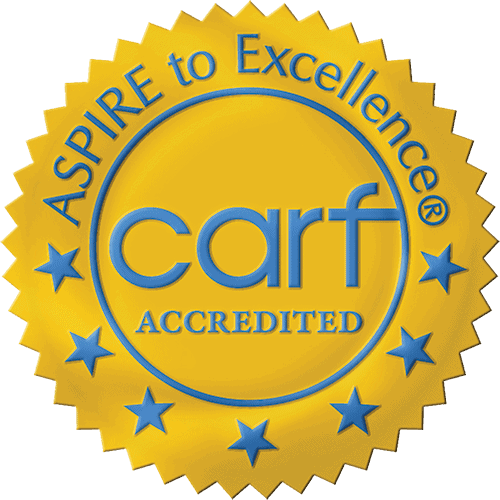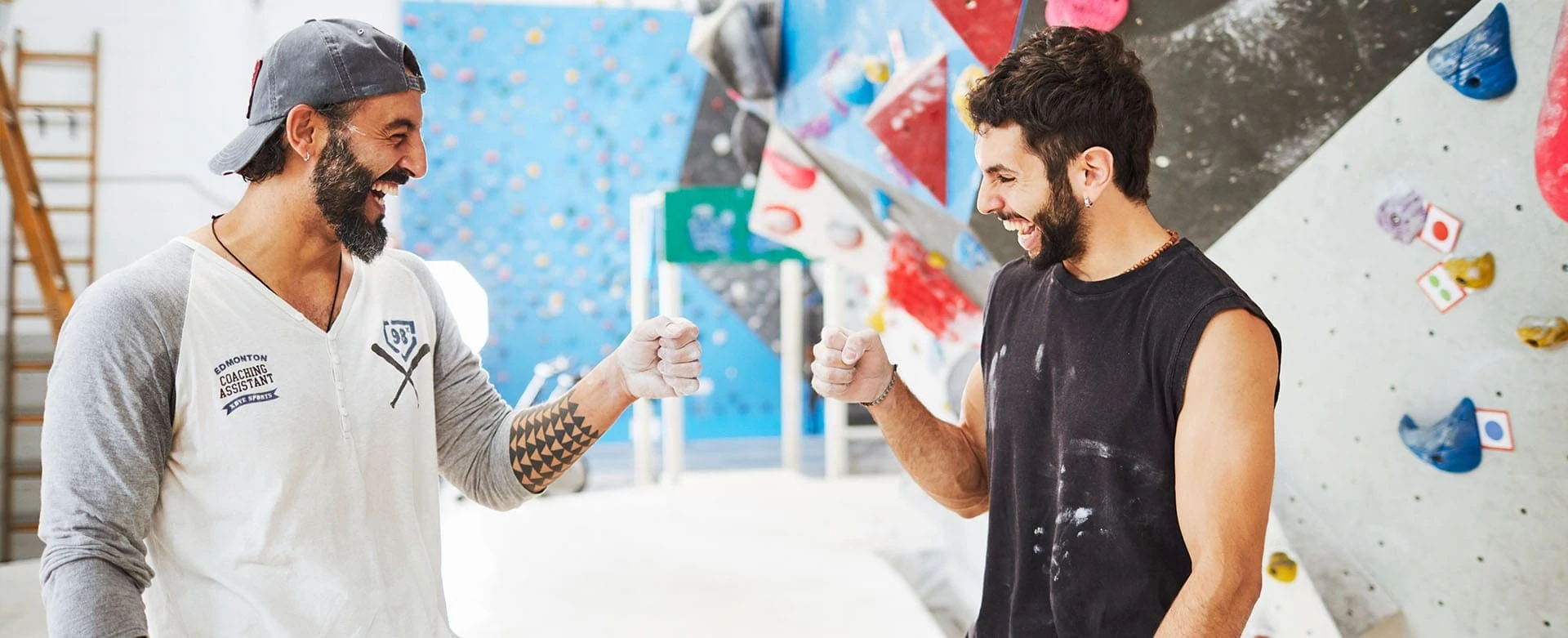Rehab for Prescription Drug Addiction in San Diego
Prescription drug addiction, particularly fentanyl, can be blamed for overdose being the #1 killer of people aged 18-45. It’s hard for a prescription drug addicted individual to quit using on their own. Addiction is a severe disease of the mind and overcoming the withdrawals can be greatly alleviated with medication assisted treatment.
Fortunately, prescription drug addiction rehabilitation centers like Present Moments Recovery can help people addicted to prescription drugs recover. If you are or you know someone who is struggling with addiction, this is the perfect time to seek help.
Our prescription drug addiction treatment and rehabilitation programs combine counselling, a supportive environment, and services of qualified prescription drug treatment services providers to help one rise above the basic desire to abuse drugs.
The right prescription drug treatment and rehabilitation program is dependent on specific individual needs and the type of drug abused. Treatment options are diverse but most specialists use behavioral and medical treatments with an option for either outpatient or inpatient programs.
Out treatment program is a family-owned operation that really understands (from first-hand experience) what you are going through. We are here to help you in a non-judgemental way. Call Mark now at (619) 363-4767.
Specialized Prescription Drug Addiction Treatment &Therapy
In addition to the individual and group rehabilitation counseling, Present Moments Recovery caters to other aspects surrounding the problem and ways of restoring health. Treatment focus can be categorized into:
Cognitive Behavioral Therapy
Cognitive behavioral therapy seeks to help patients understand the root causes of the thoughts and behaviors that drives them to abuse drugs. During the treatment, the client will focus on his or her own lives and come up with ways of changing and improving it. The principle behind this technique is that “change starts internally before it can be manifested externally.” Cognitive behavioral therapy aims to help patients develop skills of resilience and ability to cope with negative emotions, which are vital in recovery. It has proved successful in treatment of addiction and depression.
Holistic Therapies
Holistic addiction treatment programs focus on the whole person; the mind, body and spirit. Holistic therapy practitioners believe that for one to achieve physical healing, he or she must be well physically, emotionally and spiritually. Simply put, holistic addiction treatment is a natural therapy that touches on all spheres of the patient’s life. Holistic addition therapy includes activities like yoga, acupuncture, massage therapies, eating a balanced diet, and experiential activities. These helps to keep the patient constructively busy, effectively reducing the risk of a relapse.
Prescription Drug Rehab in San Diego
Our clients typically admit to Present Moments Recovery for inpatient rehab which is beneficial because of the close supervision and high levels of support. During inpatient rehab, the patients are under 24-hour medical supervision by drug treatment professionals and this increases the chance of full recovery. Also, inpatient rehab provides the perfect setting (away from other worries of life) for patients to focus solely on recovery.
Detoxification may be required to safely remove the drugs from the body. Then individual and group therapy begins. Here, the main aim is usually to get one back to normal health the soonest possible. Outdoor and indoor activities that stimulate and heal the mind and body are carried out too.
While undergoing this, the patient is regularly in attendance at meetings with a psychiatrist each week. One is also allowed to work with other clients who are overcoming similar challenges in the support group meetings. Here, new members are welcomed to the group and exchange of experiences on progress also takes place. There are also recreational activities like yoga which one can engage in during treatment.
Medication-Assisted Treatment for Prescription Addiction
Our clinical staff will use whatever tools are available to assist our client's recovery and this includes the prescribing and dispensation of drugs to help adjust craving like Suboxone, Sublocade, and Subutex (all brand names for buprenorphine).
Our medical director will continue existing prescriptions and (where approprate) write a prescription for MAT medications like these. Then, our clinical staff can manage the dispensation of the medication at the assigned times.
It's very helpful to have all clinical parts of the recovery support team in communication with each other like they are at Present Moments. Dr. Milgram will be in charge of both the prescribing of the medications, monitoring your progress, and managing your personalized treatment regimen. This way, the treatment is holistic and truly supportive in nature.
Medication-assisted treatment (MAT) for opioid addiction combines medication with behavioral health services. It has been shown to not only save lives but also increase recovery rates. Present Moments Recovery maintains the availability of MAT medications (when appropariate) throughout the entire continuum of care we offer.
MAT significantly reduces the risk of relapse and opioid overdose deaths. In fact, the risk of relapse for someone with an opioid use disorder after detox only is 70%; heroin is 91%. MAT drastically reduces that risk.
Medication-assisted treatment reduces cravings, anxiety, withdrawal symptoms, and post-acute withdrawal syndrome, which can cause severe withdrawal symptoms to recur up to a year after treatment, interfering with an individual’s ability to continue or engage in other therapies. Managing these physical issues allows the individual to focus their attention on their psychological, emotional, and spiritual needs through therapy, group meetings, and recovery support groups.
At Present Moments, MAT is used in combination with interdisciplinary interventions, including evidence-based therapies like dialectical behavioral therapy (DBT) and cognitive behavioral therapy (CBT). We also assess each patient for mental health issues so that we can address them, as well as other healthcare needs that may come up in the assessment process, such as chronic pain.
Studies show that MAT, when coupled with counseling, greatly increases one's ability to attain long term sobriety.
San Diego's Premiere Comprehensive Continuum of Care Model
Addiction is progressive and destructive to the person who is caught in its grasp. But recovery is attainable for those who come to a reputable treatment center and get the help they need to recover.
‘Home-Like’ Setting and Incredible Value
After making sure that detox takes care of withdrawals and physiological symptoms, we offer residential treatment for the first 1-3 months of sobriety in a comfortable ‘home-like’ setting where individualized attention can place a person’s needs in early recovery at the forefront. Welcome to recovery in an ambience of family and home.
We specialize in helping recovering men and women establish a firm foundation in recovery, so after facilitating the detox process all the way through residential (or inpatient) rehabilitation, we assist them in planning for a ‘step down’ program to receive “after care.” If our client is going to remain in the local San Diego area, we will typically continue counseling the individual on an outpatient basis as he or she moves into a local sober living house (or returns home).
Longer Treatment Period = Greater Long-Term Success
Our family run treatment center is able to provide a much longer treatment period for the same cost that most rehabs offer a 28 day program. The standard length of time for our continuum of care is 90 days, which creates a very solid foundation of sobriety and newly learned behaviors in the men and women whom we treat.
There are countless medical studies which have clearly demonstrated a correlation between longer treatment periods and better outcomes (ie long-term sobriety). This is one of the reasons that Present Moments has been so successful in helping women and men get “over the hump” of initial sobriety and truly establish a rewarding and uplifting life without the use of their drug of choice.
Skilled and Caring Clinicians Dedicated to Your Recovery
The treatment process through our entire continuum of care is facilitated by caring and highly skilled addiction clinicians who have achieved credentials and certifications that are indicative of the best in our industry. Many of our team members have had their own lives touched by addiction, and there comes with this a personal investment in your success because, simply put, our recovery is best supported by helping you with yours. You will not find a more dedicated and effective team of clinicians at any other center.
Comprehensive Clinical Treatment in a Comfortable and Serene Environment
We Provide a Continuum of Care for Long-Term Sobriety
Our experience in helping men and women overcome addiction for the long-term has led us to create a multi-level continuum of care. The benefits of extending treatment through several months and gradually making the treatment less intensive have been well established. We provide these levels of care in order to facilitate long-term recovery and integration back into a career.
The treatment process typically starts with a safe & comfortable medically supervised detox, and then transitions into our residential treatment environment for full-time treatment over a period of 1-3 months. Our residential home provides all residents with a nurturing, family atmosphere in a calm environment.
Here are some more facets of the treatment program at our San Diego residential rehab program:
Examples of Treatment Activities
- Cognitive Behavioral Therapy (CBT)
- Eye Movement Desensitization and Reprocessing (EMDR)
- Motivational Interviewing
- Hypnotherapy
- Psycho Educational Groups
- Somatic Therapies: Reiki, Mindfulness, Qigong
- Expressive Therapies: Art Therapy, Music Expression, Creative Writing
- 12-Step Based Support Group Meetings (and non 12-Step)
- Holistic Processes: Meditation, Physical Fitness, Acupuncture, Yoga
"Stepping Down" Into Sober Living
Then, when our client is ready to resume their career (or education), we have monitored and supportive sober living homes for them to reside in. Our clients will remain connected to their clinical support team through outpatient counseling as they ’step down’ their level of care and eventually live on their own. Read more about our San Diego California sober living home for men.
Achieving the Critical First Year of Sobriety
Numerous medical outcome studies have confirmed the notable dropoff in relapse rates for patients who have achieved certain specific milestones. For instance
- Patients who undergo some form of treatment after detoxification took 40% longer to relapse (if they relapsed at all)
- The likelihood of long-term sobriety basically doubles after a year of initial abstinence is achieved
- Less than 15% of individuals who achieve five years of continuous sobriety will ever relapse
Our mission is to provide our clients the monitoring and support necessary to help them achieve some of these crucial milestones. When you are in our care, your medical file will remain in the hands of the same clinical team throughout every level of care that you matriculate through.
Why Do People Abuse Prescriptions?

Unfortunately, many prescription drugs that are addictive cause a person to build a tolerance quickly, meaning they need more of the same drug to get the “high” they’re seeking.
Some people may mix addictive drugs (such a painkiller with an anti-anxiety drug or alcohol with either) hoping to enhance the effects of both drugs. This can be dangerous and put the drug user at risk for an overdose.
Getting Help for Prescription Drug Abuse & Addiction
People take prescription drugs for health problems or illnesses at some point in their life. Most of us have taken an antibiotic or painkiller when we were ill or injured.
Usually, people take the prescription as the doctor directs them, but some people don’t. Some people may like the way they feel when they take a little bit more than needed, and begin to abuse their prescriptions. There are some drugs that alter the mental state of their users, such as anti-anxiety drug or opiate pain drugs that can become addictive when abused. A certain percentage of the population is vulnerable to these types of addiction. Once addicted, the drug user finds it’s hard to keep up with the amount of drugs they want and finding a legal way to obtain them.
This can often lead to drug-seeking behavior and a long cycle of trying to quit using and relapse.
How Do People Who Abuse Prescription Drugs Act?
There are many prescription drugs that can be abused, and the way a person acts will depend on their individual chemistry as well as the drug they are using. Typically abused prescription drugs include those in the opiate/opioid class (such as Codeine or Oxycodone), tranquilizers (such as Klonopin or Valium) and stimulants (such as Ritalin).
Here are a few ways that certain prescription drugs can make their users act:
- Stimulants: Users may seem shaky and “hyper”, not needing to sleep or unable to sleep, talking rapidly. When taking large amounts of a drug, users may seem paranoid.
- Opioids/opiates: Users may seem sleepy and express euphoria. May be unable to stay on topic or carry on a conversation; may “nod out” (i.e. pass out) in the middle of conversation or doing something else. Breathing will be slow and shallow.
- Tranquilizers/sedatives: Users may seem sleepy or “slow” to respond to others. May be incoherent or groggy while on the drug and not motivated to do much else. May have a disheveled appearance or appear pale.
Drug users who are addicted will also be agitated/upset when they’re not able to get away and sue the drug or can’t secure a supply of it.
Many people who abuse prescription drugs on a daily basis will experience uncomfortable physical and emotional withdrawal symptoms when they can’t get a hold of their drug of choice.
When Does Prescription Drug Abuse Become Addiction?
Addiction is a disease that affects the body, mind and spirit. It is considered a behavioral disorder, similar to mental health disorders. While it’s not curable, it is treatable.
Addiction doesn’t develop overnight, but once a person has become addicted, they will exhibit certain symptoms and behavior patterns. One of the first signs of addiction is drug-seeking behavior. That means that a person will start to do whatever it takes to acquire their drug of choice.
People who are addicted to prescriptions will try to get more of their pills, sometimes even resorting to illegal methods. They may first try “doctor shopping” – using multiple doctors to get multiple prescriptions, or even forging their own prescriptions if this doesn’t work. Sometimes people will go through family members’ medicine cabinets and steal drugs.
People who are addicted to pills will often cut them in half or hoard them to prevent running out of them. If they can’t get a supply through the means above, they may try to purchase them from people on the street or websites on the Internet.
Some people who have become addicted to prescription opioids have turned to heroin when their prescription supply is cut off. This makes them more susceptible to overdose, because street drugs are much stronger than prescriptions.
Effects of Prescription Drug Addiction
When a person is addicted to drugs, it seems like there is an avalanche of other problems in their life. Addiction often occupies more and more of the drug users’ time, causing them to neglect other important responsibilities.
Here are a few things that a person who is addicted may be struggling with:
- Relationship Problems: Addiction is a disease that affects not only the addicted person, but their family, as well. A person who is addicted to drugs, and often high, will not be their "normal self". They may treat people coldly, ignore important events, or be uncaring about others’ feelings. They may neglect family duties completely as their addiction takes over more of their life.
- Legal Problems: A person may be in trouble financially and have debt collectors or creditors calling or threatening them. They also may break the law and end up arrested, facing the threat of jail.
- Health Problems: Addiction takes a toll both on the body and the mind. Because of this there are many health problems to be aware of, especially when there is a risk of overdose or long-term organ damage. Every pill a person takes has side effects, and these can be magnified with long-term abuse.
- Behavior Issues: A person who is addicted to drugs doesn’t exercise their best judgment. They may take more risks than usual or act aloof, angry, or uncaring, as their prescription use becomes more of a problem. They will display drug-seeking behavior, which can involve deception or manipulation to get what they want.
- Withdrawal Symptoms: A person with a substance use disorder may experience painful or uncomfortable physical or emotional withdrawal symptoms, from tremors to fevers, hallucinations or seizures. It depends on the individual, the drugs they have been using, and how much/long they have used them.
These are all symptoms of prescription drug use, but can be symptoms of other addictions or mental health issues as well. If you or a loved one exhibits these symptoms, help is available and a treatment center can help you plan a way out of addiction and into recovery.
Prescription Drug Addiction, Detox and Recovery
No matter what drug you have a problem with, help is available and getting clean is possible. We’ve helped many people with substance use disorders reclaim their lives and chart a path to recovery.
Treatment for prescription drug addiction can be very effective, as long as you’ve chosen a provider that understands the nature of your problem and is willing to work with you to create a treatment plan for success.
Detoxing from your drug of choice is the first step of getting help for your addiction. This is done in a safe, therapeutic environment where you can be as comfortable as possible.
Some people who use prescription drugs also come to us with a dual diagnosis. This means that they also have an underlying mental health disorder that they may have been using drugs to self-medicate with. We have experience with helping people with these issues learn to cope with their symptoms as they learn to live a drug-free life. All of our clients are assessed for mental health issues as a part of their admissions.
Everyone who walks through our doors is treated as an individual, and made to feel as safe and supported as possible as they begin therapy and learn new coping skills for the future. For people addicted to opioids/opiates, our experience has led us to create a combination of both therapeutic methods and medication-assisted treatment, which can help quell some withdrawal symptoms and decrease the desire to use. A combination of one-on-one therapy, groups, and 12-step meetings will help provide the structure to help all of our clients on their journey to healing and growth.
Contact Present Moments for Help Today
Do you or somebody you love have an addiction to prescription or other drugs? We want to help you take your first steps and find a safe, therapeutic environment to get clean and sober. Our founder Mark Gladden is standing by to take your call, check availability, and see if our prescription drug rehab in San Diego is a good match for you in your current recovery trajectory. Call him now at (619) 363-4767, or send a confidential form by filling out the fields on this page. We are waiting for your call. Don’t hesitate!




